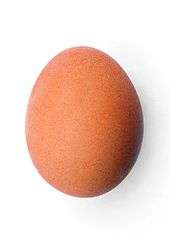Definify.com
Definition 2026
ovo
ovo
Galician
Etymology
From Old Portuguese ovo (“egg”), from Latin ōvum (“egg”),
Noun
ovo m (plural ovos)
Ido
Etymology
From Esperanto ovo, from Latin ōvum (“egg”), from Proto-Indo-European *h₂ōwyóm (“egg”).
Pronunciation
Noun
ovo (plural ovi)
Latin
Etymology 1
Onomatopoeic; compare Ancient Greek εὐάζω (euázō).
Pronunciation
- (Classical) IPA(key): /ˈo.woː/
Verb
ovō (present infinitive ovāre, perfect active ovāvī, supine ovātum); first conjugation
Inflection
Derived terms
Etymology 2
From ōvum (“egg”).
Pronunciation
- (Classical) IPA(key): /ˈoː.woː/
Noun
ōvō
References
- ovo in Charlton T. Lewis and Charles Short (1879) A Latin Dictionary, Oxford: Clarendon Press
- ovo in Charlton T. Lewis (1891) An Elementary Latin Dictionary, New York: Harper & Brothers
- Félix Gaffiot (1934), “ovo”, in Dictionnaire Illustré Latin-Français, Paris: Hachette.
- Meissner, Carl; Auden, Henry William (1894) Latin Phrase-Book, London: Macmillan and Co.
-
(ambiguous) from beginning to end: ab ovo usque ad mala (proverb.)
-
(ambiguous) from beginning to end: ab ovo usque ad mala (proverb.)
Portuguese

ovo
Etymology
From Old Portuguese ovo (“egg”), from Latin ōvum (“egg”), from Proto-Italic *ōwom, from Proto-Indo-European *h₂ōwyóm (“egg”), likely a derivative of *h₂éwis (“bird”).
Pronunciation
- (Portugal) IPA(key): /ˈo.vu/
- Hyphenation: o‧vo
Noun
ovo m (plural ovos)